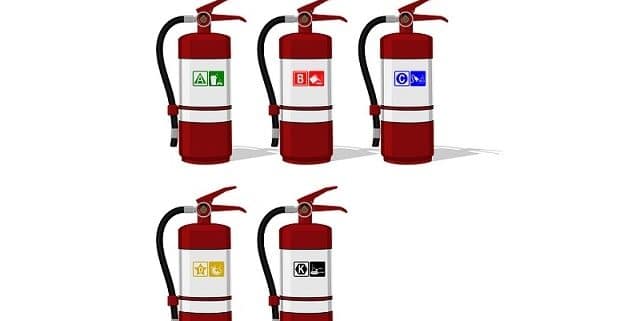Types of Fire Extinguishers
When a fire happens, it’s probably instinct to grab an extinguisher and douse the flames. We all know the P.A.S.S method. However depending on what type of fire you’re dealing with, the wrong extinguisher could actually spread the flames and put you in even more danger. There are 5 different classes of fire extinguishers. You need to know the difference. So let’s do a quick run down.
Class A is for regular things like furniture, wood, paper, garbage, clothes. This is what you would use to put out clothes burning on the front lawn of your ex’s house. Class B is for flammable liquids like gas, diesel or grease. You’d use this one if your ex lit your gas tank of your car on fire. Do not use class A on this, it will spread like wildfire. Class C is for electrical fires. Use class C if your ex lights your stereo on fire. Again don’t use A. Class K is for cooking oils and animal fats. This is for when your ex torches your dinner. Class D is for flammable metals. I don’t have an example of your ex lighting something metal on fire because I’d hope you two have broken up by now. But for you next relationship get a fire extinguisher that is class ABC, then your covered for the first three.
Not knowing the difference between fire extinguishers could put you in a very scary situation. Even scarier than your ex. Always check the extinguisher before you use it.




Thanks for helping me understand that regular things like furniture, wood, paper, and more would only need Class-A fire extinguisher equipment. I would want one in the backyard, because we have an outdoor kitchen and dining area there. And I would probably get other types of fire extinguishers as well for the car and the furnace if they would need a Class-B or C type.
I had no idea that there were so many different types of fire extinguishers out there, but as it turns out, that’s exactly how it is. Who knew there was so much variety in this case then?
I never thought that fire extinguishers would have so many different types. The sheer amount has surprised me quite a bit.